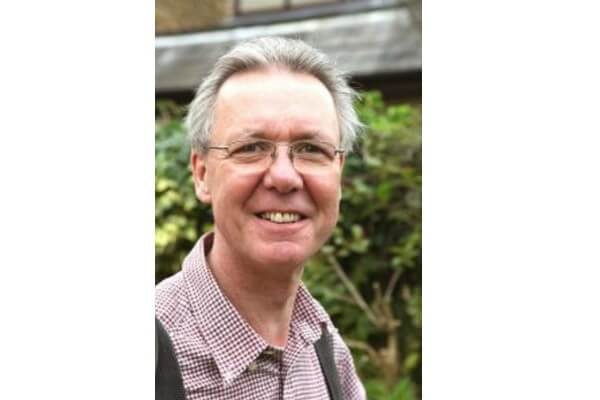Long-Term Multiple Sclerosis Sufferer Inspired to Develop New Skills by New Employment Charity Astriid

Patrick Burke, an ex-computer programmer from Berkhamsted, Hertfordshire was inspired by employment charity Astriid to focus on identifying and developing the new skills he has found within himself since his diagnosis with Multiple Sclerosis.
Patrick was an international contract computer programmer when he was diagnosed at age 40 in 1995. Eventually Patrick was left with no choice but to take medical retirement by 2012 as his illness advanced to Secondary Progressive Multiple Sclerosis. Secondary Progressive MS is a type of Multiple Sclerosis which means Patrick’s disability gets steadily worse over time.
He said: ‘By 2012, I had to call it a day and that was a life-changing event. All of the rules you live your life by change overnight; the suit for work now stays hung up in the wardrobe forever.
‘The hardest thing is admitting that you are now a different person. The first step is identifying my transferable skills. It took me a long time to become content in my own skin, and it only happened recently, in the past two years.’
Determined to try and make a new life for himself, Patrick continued to seek out work, but employers were reluctant to hire him despite him being a trained professional with years of experience. Having given up on looking for long-term employment by this point, Patrick began leading a host of talks as a service user to student nurses about his experiences living with a chronic health condition. Following this, Patrick was contacted to assist at a meeting with people looking for work, where he met Steve Shutts, Chairman of Astriid.
Astriid is a charity aiming to tackle the UK’s skills crisis by filling the gap with the invisible talent pool, made up of skilled professionals who are unable to work full time in conventional job roles because of long-term medical conditions and are often overlooked by employers but may be more suited to voluntary or paid flexible positions. The charity invites jobseekers who have chronic illnesses to join their free online community where they get matched to flexible paid or voluntary positions listed by employers.
Patrick said: ‘Astriid helped me to focus my mind on developing and identifying new skills I have found since giving up work. Everyone has a skill; the difficult part is realising that your skill is one that’s needed by employers.’
In England, around 15 million children and adults live with chronic disease according to the Department of Health. Astriid estimates that across the UK, there are hundreds of thousands of people with a wide range of qualifications, skills and experience, but are excluded from the national workforce because of long-term medical conditions.
According to The Open University, 63% of UK organisations are currently experiencing a skills shortage and three in five senior business leaders report that their organisation is not as agile as it needs to be due to a lack of skills. Patrick believes the attitudes of employers in the UK must change, ‘They need to embrace disabled people and encourage them to get out there doing things.’
Astriid’s chairman, Steve Shutts commented: ‘Unfortunately, many people like Patrick who live with ongoing health conditions but still want to work have trouble finding employment. We’re thrilled that Patrick was able to identify and refine his skillset and go on to do something he enjoys.
‘As Patrick’s illness continues he’s able to work less and less as time goes on, but at the moment he works 2-3 days a week giving talks and has hopes in the future to work contributing to increasing accessibility in buildings for people with mobility issues who may use a mobility scooter like himself.’
For further information on Astriid, to sign up as a partner, become a member, advertise a position or donate, visit: www.astriid.org.uk/. To stay updated on social media, join the conversation using #InvisibleTalentPool via Facebook, Twitter, LinkedIn and Instagram.
Look out for a full feature on Patrick in the Autumn issue of the magazine.

